Russian and Greek
SYB’s cousin was unable to use her tickets to this afternoon’s Carnegie Hall program by the Orchestre Philharmonique de Radio France, so she generously gave SYB her tickets, and we ended up attending in her stead. The pre-concert lecture began an hour earlier, and afforded us the opportunity to put some of the music we were about to hear into context. The highlight of today’s performance: Igor Stravinsky’s Le Sacre du Printemps (The Rite of Spring, though Stravinsky would later write that the work’s Russian title would have been better translated into English as “The Coronation of Spring.”)
I always love hearing the story about how at the May 29, 1913 premiere at the Théâtre des Champs- Elysées, the outraged audience degenerated into a riot, causing one of the most notorious scandals in classical music history. The premiere is one of the dates historians cite as the birth of the Modern Age, similarly 1922: the publication of James Joyce’s seminal work, Ulysses, which was the Modern Library’s pick for best novel of the 20th century. In the retelling, the infamy of that night has always overshadowed the fact that at subsequent stagings during its six performance run, The Rite of Spring didn’t experience any disruption. Most reports of that opening night also omit the fact that, despite the revolutionary nature of Stravinsky’s work, it was in fact Vaslav Nijinsky’s choreography with its radical, almost barbaric, departure from classical ballet that provoked the audience. Furthermore, the “scandalous” riot was perhaps as much a manifestation of pre-World War I tensions as it was a reaction to the music or staging.
None of which detracts from the bold musical innovation of Stravinsky’s composition, the most audacious of which is rhythmic. A single massive chord repeats like a fast pulse, a thumping, off-kilter eighth-note motif of irregularly spaced, unpredictable accents — distilling the essence of the music to its most primitive and abstract form. The opening theme is played unconventionally on a bassoon with notes at the very top of its register, almost unrecognizably out of range; the lecturer retold an anecdote I hadn’t heard before, of how composer Camille Saint-Saëns stormed out during the Paris premiere, allegedly infuriated over the misuse of the instrument.
It’s impossible to imagine the shock of any musical score inspiring such outrage today.
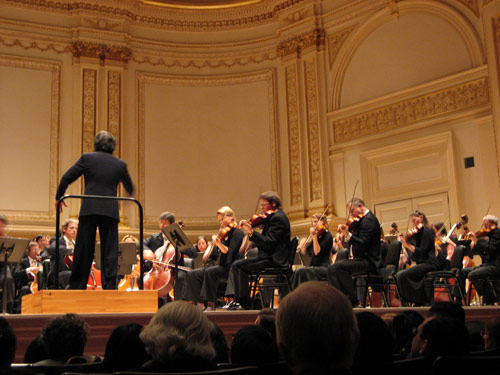
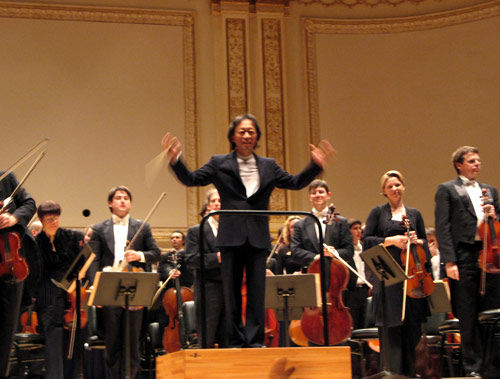
After the concert, we headed farther up the West Side to check out Kefi on 79th Street, the reinvention of the well-loved, but oft-overlooked Greek restaurant, Onera.
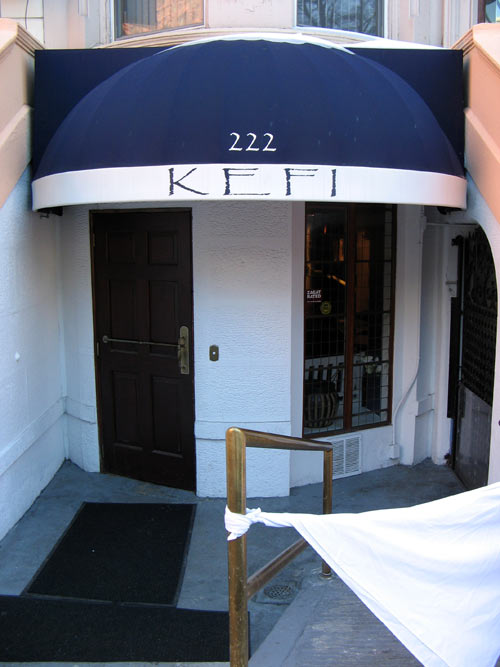
Rustic Greek cuisine is the specialty of chef-owner Michael Psilakis. For Kefi, the lower-level townhouse space has been made under to accommodate the more casual vibe (and lower prices): butcher-block tabletops replace the white linens and swaths of alternating blue and white fabric (suggestive of the Greek flag) float in place of the crystal chandeliers.
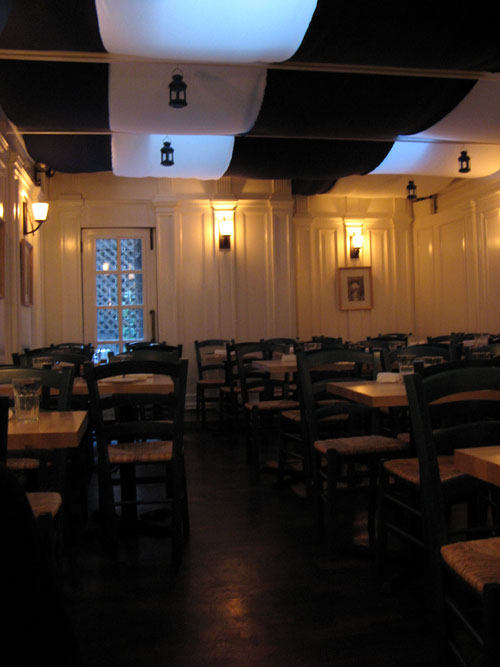
Instead of individual entrees, we opted for family-style meze: Spanakopita (spinach pie) is open-topped, a tangle of shredded cheese and spinach leaves in a warm, creamy sauce, sitting atop sheets of crispy phyllo dough.
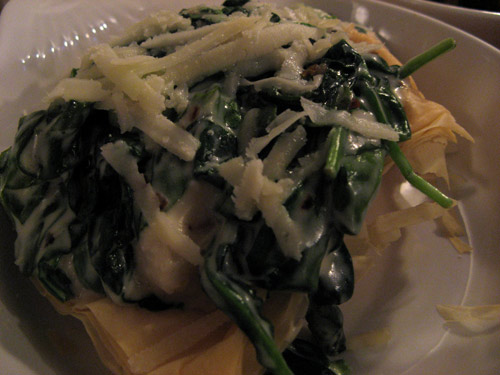
The shareable array of spreads included flavorful takes on tzatziki (yogurt), melintzanosalata (smoky eggplant purée), taramosalata (Greek-style “caviar” made from tarama, salted and cured carp roe) and sun-dried tomato/fava hummus — all impeccably fresh and served with wedges of warm, addictive pita.

Tender, homestyle meatballs come smothered in a rich tomato sauce thick with fresh herbs, garlic, onions and olives. New York magazine just named these the best meatballs in the city.

To rounds things out, a hearty helping of crisp calamari, and for dessert: the moist, crumbly walnut cake alongside a scoop of walnut ice cream. Delicious!

We arrived in time for the first seating at 5:00PM, which seemed a bit early at the time, but within half an hour, every table was filled and the entrance bar could hardly contain the spillover of waiting patrons. It seems we’re not the only ones who saw those rave reviews.
For those who miss the more formal Greek cuisine of Onera, Psilakis just teamed with Donatella Arpaia to open ambitious new restaurant, Anthos, in the old Acqua Pazza space on 52nd Street.
There's 1 comment so far ... Russian and Greek
That was such a fun day!
Go for it ...
Search
Popular Tags
Categories
Archive
- July 2010
- July 2009
- January 2009
- November 2008
- September 2008
- August 2008
- July 2008
- June 2008
- May 2008
- April 2008
- March 2008
- February 2008
- January 2008
- December 2007
- November 2007
- October 2007
- September 2007
- August 2007
- July 2007
- June 2007
- May 2007
- April 2007
- March 2007
- February 2007
- January 2007
- December 2006
- November 2006
- October 2006
- September 2006
- August 2006
- July 2006
- June 2006
April 4, 2007